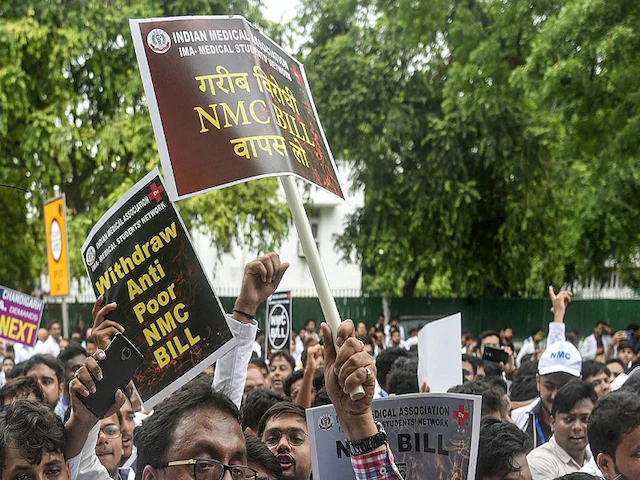Rajya Sabha clears NMC bill: Experts express concerns
 The Rajya Sabha has passed the controversial National Medical Commission bill amidst the doctor’s protest across the country. Union Health Minister Dr Harsh Vardhan called it a ‘golden day’ in the history of medical education.
The Rajya Sabha has passed the controversial National Medical Commission bill amidst the doctor’s protest across the country. Union Health Minister Dr Harsh Vardhan called it a ‘golden day’ in the history of medical education.
The bill was passed with two new amendments introduced by the Upper House, which means it will be referred to the Lok Sabha once again before going to the President of India for his approval. Several IMA wings, medical students and other groups held protests and marched towards Parliament, demanding the government to withdraw the bill.
Health Minister Harsh Vardhan in his reply on the debate said that he fought for the rights of doctors and to maintain the sanctity of this profession and hence, he said, there was “no need for any apprehension”. He also added that NEET is already an institutionalised body which is conducting examinations in 13 languages. “Once the NMC Bill is approved, exit examination will be implemented in the next three years,” he said.
The bill also has a provision for making national standards in medical education uniform by proposing that the final year MBBS exam be treated as an entrance test for PG and a screening test for students who graduate in medicine from foreign countries. This National Exit Test (NEXT), would ensure that the proposed National Medical Commission (NMC) moves away from a system of repeated inspections of infrastructure and focuses on outcomes rather than processes.
However, a certain section of medical fraternity is demanding amendments to the Bill, particularly to sections 32(1), (2) and (3). According to them, these sections it will encourage quackery by providing licences to those not holding MBBS degrees to practice modern medicine as community health providers.
“The Bill was conceived by the previous UPA government when the MCI was put in suspended animation. The attempt was to replace MCI because there were allegations of corruption. The new government wanted to transform medical education and that is why they wanted to continue with the NMC Bill. But there are still many questions which will be left unanswered since it is an experiment,” Dr M C Mishra, former director of AIIMS, told The Indian Express.
“There was an urgent need for regulatory reform in the health sector. Bringing NMC has been a good approach. Not every medical student has the skills. This is where a good quality exit exam can help. But a hurried implementation will create a huge mess. The government should go through similar models adopted in other countries and modify it accordingly,” said Anant Bhan, researcher, Bioethics, Global Health and Health Policy.
The Rajya Sabha passed the bills with two amendments seeking increased representation from state medical councils and vice-chancellors of medical universities on the NMC.
Source: The Indian Express, India Today, Livemint.